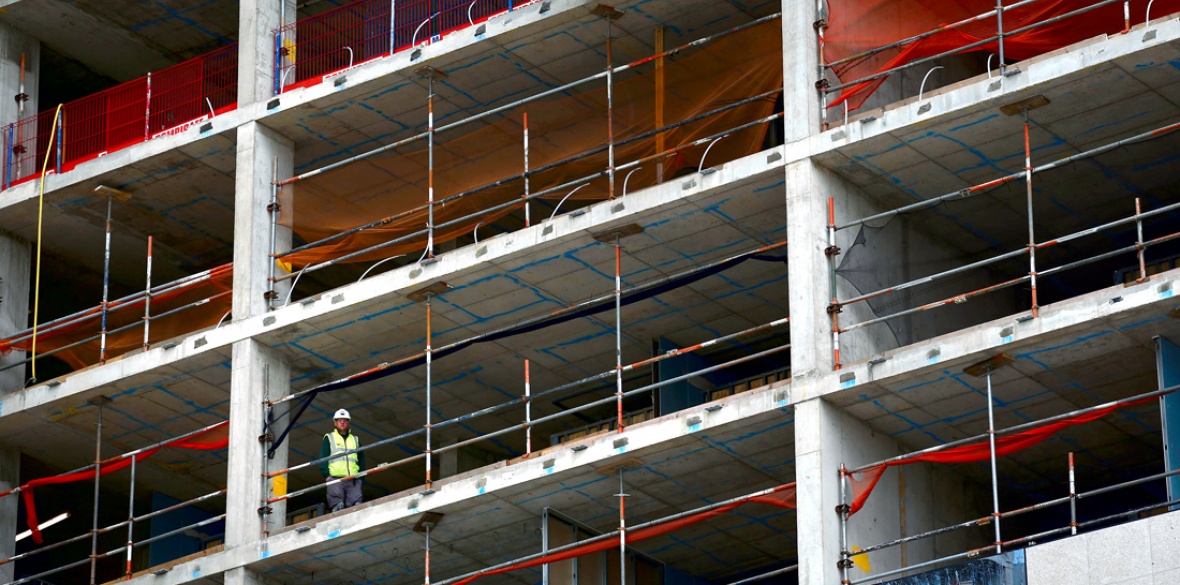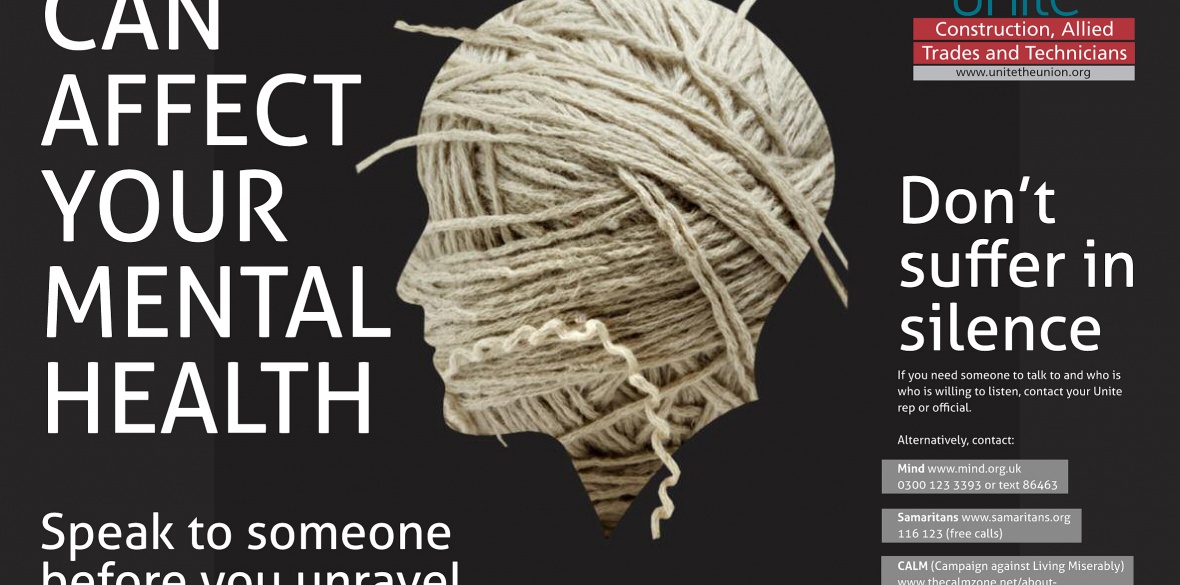This is the last article you can read this month
You can read more article this month
You can read more articles this month
Sorry your limit is up for this month
Reset on:
Please help support the Morning Star by subscribing here
Unite is passionate about International Workers’ Memorial Day.
Every year on April 28 our members across all sectors come together to “remember the dead and fight like hell for the living.”
Traditionally our focus has been on the physical health challenges faced by workers due to the fact that even in the 21st century far too many workers continue to be killed or maimed at work and because thousands of workers continue to die or have their lives limited due to contracting industrial illnesses or diseases.
During 2016-2017 137 workers left their homes and did not return. This does not include deaths — in some cases slow and agonising — brought about by exposure to unsafe toxins and other avoidable hazards in the workplace.
Unite workplace representatives increasingly are asked to assist members who are suffering from mental health issues.
At least one in four of us will suffer mental health problems during our lifetime and across all the industries Unite has members, mental health problems are at epidemic levels.
Our activists in areas such as construction, finance, health and road transport are reporting a dramatic increase in mental health issues amongst their members.
A confidential survey of Unite members in the construction sector last year revealed that 35 per cent admitted to having experienced a mental illness, with 44 per cent reporting their illness was so severe they had taken time off from work, yet 75 per cent had not raised their illness with management.
Every workplace is different and the reasons why people develop mental health problems are not uniform.
Our members tell us that key triggers include long hours, isolation, working away from home and being overloaded and pressurised.
This is why Unite has established a mental health taskforce which is now pulling together the good practices, information, advice and guidance and a negotiators checklist that will put employers on notice that we expect every workplace to be safe and actively prevent work related mental ill health.
Our officials already report that mental health issues are frequently tied into other employment issues and they are supporting workplace representatives. Where Unite has negotiated good practice it is the case that workplace representatives are being trained as mental health first aiders.
One Unite activist who has already undertaken such training is Paul Mooney, a convenor with Multiplex on construction projects in Scotland.
Unlike standard first aid courses, he says that mental health first aid is “proactive rather than reactive.” Mooney says that he is trained to “look for signage,” for example a worker may have experienced a recent bereavement and “is not coping well.”
His training means that he will approach, listen and then provide guidance: “Sometimes you just need to be someone to listen,” he says, while in other cases it is vital that the member is given the assistance and encouragement to seek professional health to begin to tackle their problems.
For many workers admitting suffering from a mental illness is still considered to have a stigma attached
Despite the growing number of members reporting mental health issues, there is every likelihood that the true scale of the problem remains hidden. For many workers admitting suffering from a mental illness is still considered to have a stigma attached.
This could be due to the “lunch is for wimps” culture of the banking sector, the “macho” culture still prevalent in construction or lorry driving or the attitude in the NHS that to take time off would be to “show weakness” and let patients down.
Mental health problems are made worse by a conspiracy of silence – a conspiracy which needs to be smashed if problems are to be tackled.
One worker willing to openly talk about his illness is Simon who was working as a crane operator: “At Christmas I was feeling incredibly alone and contemplated suicide. I was on Westminster station, it was announced the train wasn’t stopping and I thought of stepping out in front of it. I went back to my caravan and I was crying like a baby.”
Simon’s working conditions were the primary cause of his illness: “the long hours, the working away from home and not seeing my family. Money is good but the hours are horrendous. I started at 06.30 and finished at 21:00, I was working six days a week and I was only at home for 36 hours a week.”
After speaking to his employer about his illness he received a mental health assessment and was told he couldn’t work away from home. “The realisation was that the job was making me ill.”
Simon’s advice is straightforward: “As soon as you think that things are not right go to your doctor, seek counselling and find someone to talk to. Talking to a total stranger has really helped.”
For workers unable to seek help, the consequences can be tragic. Last year on Workers’ Memorial Day we stood in silence at the Tower Hill Memorial statue while at the same time a worker jumped to his death from construction site just metres away.
Given the mental health crisis facing the UK workforce, it would be hoped that the government was delivering extra provision to ensure that an already stretched NHS service does not become overloaded and people receive the treatment they need.
Yet since 2010 there has been a steady decline in mental health nurses — many of whom are members of Unite. Last year there were 38,774 mental health nurses compared to 45,384 in 2010 — a decline of 15 per cent.
Put simply, if people are unable to access treatment then mental health problems in the workplace will become more severe and the staff who are dedicated to helping the mentally ill are themselves placed at breaking point.
So if you attend a Workers’ Memorial Day event today or when you next talk to someone about health and safety in the workplace, please acknowledge that mental health is a workplace issue and make it clear that just like physical health, trade unions will be at the forefront of tackling mental health.
Unionised workplaces are by a country mile safer so our challenge in the year ahead is of course to mourn our dead but also to organise and build our collective strength.
Gail Cartmail is assistant general secretary of Unite










